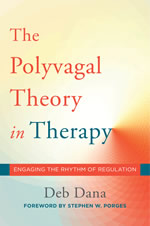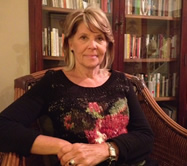Get In-Touch with Touch: A Powerful Tool for Emotional and Physiological Regulation
During the workshop, she will begin by looking at some key scientific aspects of the neurobiology of touch and how they relate to the diverse uses of touch in Biodynamic psychology. Scientific findings
underpin our understanding of the use of touch clinically. She will explore an updated understanding of the place of touch in the therapeutic encounter, referencing current research on the neuroscience of touch, affective touch, attachment, and trauma using clinical examples and integrated experiential work.
She will pay attention to the phenomena of embodied transference, countertransference, resonance and interference (Boadella, 1981) whilst negotiating the dilemma: to touch or not to touch, and, if to touch, how to touch. Exploring how we as psychotherapists can “hold the possibility of touch, as it can be both an appropriate or inappropriate therapeutic intervention” (Asheri, 2009 page 108).
The Mindfulness and Character Strengths Workbook
The Mindfulness and Character Strengths Workbook is everything I hoped for and more. It is a well-written, easy-to-follow, detailed to the nth degree workbook with extensive, free online materials to support the process including audio-guided meditations. Congratulations Ryan on a much-needed workbook to support people exploring character strengths and their integration with mindfulness.
Polyvagal Prompts: Finding Connection and Joy Through Guided Explorations
Beneath our “level of conscious awareness, our nervous system directs our movement toward and away from people, places, and experiences” (Dana & Rolfe, 2024, pg. 56). And this guidance is critical to our health and well-being. But we aren’t born knowing how to do it. Deb Dana, LCSW, and Courtney Rolfe, LCPC joined forces to write “Polyvagal Prompts: Finding Connection and Joy Through Guided Explorations.” They know we don’t innately know how to self-regulate our physiological and psychological states—we learn by co-regulating with attuned caregivers.
Contemporary Reichian Analysis
Increasing awareness and understanding of epigenetics and neuroplasticity in current research has resulted in a new perspective of psychotherapy that is integrated with neurobiological information. This information is at the root of an emerging paradigm shift in body psychotherapy that I call Evolutive Stage Neuromediator Vegetotherapy.
Somatic Psychotherapy Today Volume 14, Number 1, 2024
SPT Magazine is pleased to share Volume 14, Number 1, 2024: a compilation of articles and reviews we've posted individually so far this year. As we transition from an independent publication to join with the United States Association for Body Psychotherapy, we look forward to new submissions for Vol. .14, No. 2.









